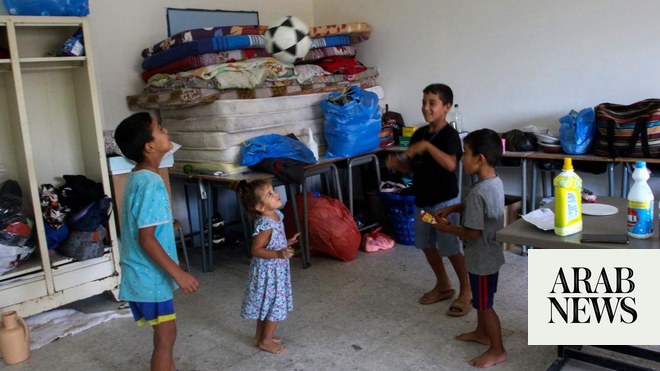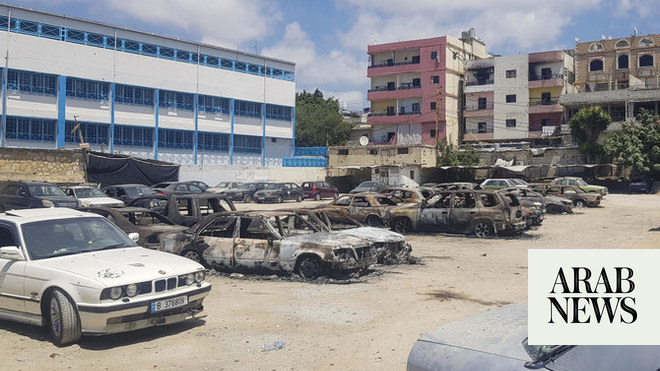
Lebanon angrily rejected final statement of international donor conference for Syria warning against returning refugees to the decimated country
The country hosts just less than a million registered Syrian refugees, has strained under the load of its increased population since the war started
BEIRUT: Lebanon angrily rejected on Thursday the final statement of an international donor conference for Syria which warned against returning refugees to the decimated country.
The statement issued by the United Nations and European Union at the end of the Brussels II conference a day earlier also said it was critical for nations hosting refugees to integrate them into the job market.
Lebanon, which hosts just less than a million registered Syrian refugees, has strained under the load of its increased population since the war started.
With the highest number of Syrian refugees per capita the country’s economy has been crippled and the government has struggled to keep a lid on tensions spilling over the border and destabilizing Lebanon.
President Michel Aoun said the Brussels statement “contradicted the sovereignty and laws of the Lebanese state.”
“Parts of the statement put Lebanon at risk because it suggests the disguised resettlement of displaced Syrians in Lebanon,” he said.
He stressed that “Lebanon insists on a political solution in Syria, and the return of refugees should not be linked to this solution.”
The anger from the Lebanese leadership threatens to increase tension inside Lebanon over the Syrian refugee population.
A sign that read “Syrians will leave” was raised on Thursday in Achrafieh, a predominantly Christian area.
Lebanon’s Christians are particularly worried that Syrian refugees will remain in the country permanently, similar to the way Palestinian refugees have been living in the country for 70 years.
The majority of Syrian refugees are Sunni, and there are fears that their presence could upset the country’s delicate sectarian balance.
But returning home in large numbers seems a distant prospect. The Brussels statement said the desperate humanitarian situation in Syria continued to deteriorate and that “significant risks remain for civilians across the country.”
Foreign Minister Gebran Bassil on Thursday however urged the international community “to quit lecturing Lebanon on humanity and to stop encouraging Syrians to stay in Lebanon.”
Speaking during a Cabinet session chaired by Aoun and attended by Prime Minister Saad Hariri, Bassil said: “What happened in Brussels cannot be tolerated.”
He said “the international community refuses to accept the idea that there are safe areas in Syria where no war has taken place for years.”
“They wish to secure jobs for Syrians in Lebanon while we want to create jobs opportunities for the Lebanese people in Lebanon.”
The angry political response comes at a time of fierce campaigning for next month’s parliamentary elections.
“A particular rhetoric is being used to provoke tension,” Nasser Yassin of the American University of Beirut, who was part of Lebanon’s delegation to the Brussels conference, told Arab News.
“Voluntary and safe repatriation is a principle to which international organizations adhere,” he said. “And it is logical because refugees should feel safe when they return to their countries.”
Yassin said the thorny political issue of securing jobs for Syrian refugees in Lebanon had already been raised at an international conference London three years ago.
“The international community believes displaced people cannot depend on aid alone and need to work.”
But he said the money Lebanon receives from donor countries is declining every year.
“A clear plan should be available to ensure that Syrians do not compete with Lebanese people in the job market.”
Before the Syrian war Lebanon had a population of about 4.5 million. That number of refugees has dropped from a peak of almost 1.2 million due to the voluntary return of a number of refugees to Syria and the migration of others to European countries.
Last week several hundred refugees returned to Syria from Lebanon in a convoy organized by the Lebanese government.
The UN refugee agency said it was not involved in organizing “these returns or other returns at this point, considering the prevailing humanitarian and security situation in Syria”.








